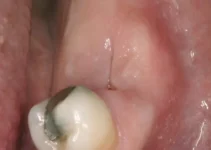Understanding how systemic diseases influence oral health is crucial for maintaining overall wellness. Conditions such as diabetes, heart disease, and arthritis can have significant impacts on your oral environment, affecting everything from gum health to tooth stability. This article explores the connections between systemic health issues and oral conditions, shedding light on why managing these diseases holistically is essential for dental and general health. By recognizing the signs and implementing preventive measures, individuals can ensure better health outcomes and improved quality of life.
Understanding the Connection
Oral health is not just about having a bright smile or fresh breath. It plays a crucial role in our overall well-being. Studies have shown that oral health and systemic health are deeply interconnected, influencing each other in numerous ways. By understanding this connection, we can better appreciate the importance of maintaining good oral hygiene and seeking timely dental care.
The mouth can serve as a window to the rest of the body, offering clues about overall health. Certain conditions and diseases manifest symptoms in the oral cavity, which can be early indicators of more significant systemic issues. Conversely, poor oral health can contribute to the development of systemic diseases, creating a bidirectional relationship that emphasizes the importance of holistic health care.
How Oral Health Affects the Body
Poor oral health can lead to various systemic problems. For instance, gum disease (periodontitis) has been linked to an increased risk of cardiovascular diseases. Bacteria from infected gums can enter the bloodstream, causing inflammation and contributing to the buildup of arterial plaques, which is a known risk factor for heart attacks and strokes.
Additionally, infections in the oral cavity can travel to other parts of the body, leading to complications. Conditions like endocarditis, an infection of the inner lining of the heart, can occur when bacteria from the mouth spread through the bloodstream and attach to damaged areas in the heart. This highlights the need for proper dental hygiene to prevent such serious health issues.
Moreover, oral health issues can impact one’s ability to eat, speak, and socialize, directly affecting overall quality of life. Chronic pain and discomfort from conditions like tooth decay or untreated cavities can lead to significant disruptions in daily activities and mental health, including stress and anxiety.
How Systemic Diseases Impact Oral Health
Systemic diseases can have a profound impact on oral health. Conditions such as diabetes can increase the risk of developing periodontal disease. Elevated blood glucose levels can foster an environment where bacteria thrive, leading to infections in the gums and other oral tissues. Diabetic patients often experience slower healing times, making dental treatments more challenging.
Autoimmune diseases, such as lupus and rheumatoid arthritis, can also affect oral health. These conditions often cause inflammation in the joints and other tissues, including those in the mouth, leading to dry mouth (xerostomia) and increased susceptibility to infections and dental decay.
Medications for systemic conditions can further complicate oral health. Many drugs, particularly those used for managing hypertension, depression, and allergies, can cause dry mouth. A lack of saliva can lead to difficulties in chewing and swallowing, increase the risk of tooth decay, and make the oral cavity more prone to infections.
These insights highlight the importance of having an integrated approach to healthcare where dentists and medical professionals work together to manage and maintain both oral and systemic health. For more in-depth discussions on related topics, explore our other articles on the intricate connections between different aspects of health.
Common Systemic Diseases Linked to Oral Health
Oral health is often seen as a window into the overall health of an individual. Numerous research studies have demonstrated a significant correlation between oral health and systemic diseases. Understanding these connections can help in the prevention and management of various health conditions. This article delves into some of the common systemic diseases linked to oral health.
One of the primary reasons for the connection between oral health and systemic diseases is that the mouth acts as a gateway to the body. Bacteria and inflammation in the oral cavity can spread to other parts of the body through the bloodstream, contributing to or exacerbating systemic conditions. Here, we will discuss how poor oral health is related to cardiovascular diseases and diabetes.
Cardiovascular Diseases
Cardiovascular diseases (CVDs), which include conditions like heart disease and stroke, have been closely linked to oral health. The primary mechanism behind this connection is inflammation. Chronic inflammation in the mouth, often due to gum diseases like periodontitis, can lead to an increase in inflammatory markers in the bloodstream. This systemic inflammation can contribute to the formation of atherosclerotic plaques and increase the risk of heart attacks and strokes. Several studies have shown that individuals with periodontal disease are more likely to develop cardiovascular diseases. A study published in the journal of the American Heart Association found that improving oral health could potentially reduce cardiovascular risk. Researchers believe that treating periodontal disease may help in the reduction of systemic inflammation, thereby lowering the risk of cardiovascular events.
Moreover, the presence of pathogenic bacteria in the mouth can enter the bloodstream and affect the endothelial function of blood vessels, promoting atherosclerosis. Maintaining good oral hygiene through regular brushing and flossing, as well as routine dental check-ups, is essential in mitigating these risks.
Diabetes
Diabetes and oral health have a bidirectional relationship, meaning that not only can diabetes increase the risk of oral health problems, but poor oral health can also exacerbate diabetes. People with diabetes are more prone to infections, including gum disease, due to their impaired immune response and reduced ability to heal.
High blood sugar levels can lead to an increased amount of glucose in saliva, which promotes the growth of bacteria and leads to plaque formation. This, in turn, can cause gum disease, a common complication in diabetes patients. Research has shown that managing periodontal disease can improve blood sugar control in diabetics, demonstrating the interconnectedness of these conditions.
Conversely, severe gum disease can make diabetes more difficult to control. The inflammation from periodontal disease can increase blood sugar levels, creating a vicious cycle of poor health. Therefore, it is crucial for diabetes patients to prioritize their oral health as part of their overall diabetes management plan.
Proper oral hygiene and regular dental visits are vital for diabetes patients. Effective management of gum disease can lead to improved glycemic control and reduce the risk of diabetes-related complications. Understanding the links between systemic diseases and oral health emphasizes the importance of maintaining good oral hygiene. To gain further insights into how oral health affects overall well-being, explore our other articles on related topics.
Mechanisms of Interaction
The dynamics between oral implants and the surrounding biological environment are complex and multifactorial. Understanding the mechanisms of interaction between implants and the biological tissues is essential for achieving long-term successful outcomes. These interactions can be categorized into several key processes, each impacting the stability and longevity of the implant.
Three primary mechanisms play significant roles in the interaction between oral implants and biological tissues: inflammation, immune response, and bacterial spread. Each of these mechanisms has unique implications for implant success and must be managed meticulously to ensure optimal performance.
Inflammation
Inflammation is a natural biological response to injury or foreign bodies, including dental implants. The initial insertion of an implant triggers an inflammatory response, which is crucial for tissue healing and regeneration. This process includes the recruitment of various immune cells to the site, aimed at removing debris and pathogens, and facilitating tissue repair.
While acute inflammation is necessary for healing, chronic inflammation can be detrimental. Chronic inflammation can lead to peri-implantitis, a condition characterized by the progressive loss of supporting bone around the implant. Managing inflammation effectively through proper surgical techniques and postoperative care is essential in preventing such adverse outcomes.
Immune Response
The immune response is intricately linked to inflammation but comprises a broader range of processes aimed at defending the body against pathogens and foreign materials. When a dental implant is placed, it is recognized as a foreign object, prompting an immune reaction. This involves both the innate and adaptive immune systems, which work in coordinated ways to either integrate the implant or expel it.
A well-regulated immune response is vital for osseointegration—the direct structural and functional connection between living bone and the surface of a load-bearing implant. Factors like implant material and surface properties can influence the immune response, affecting the overall success of the implant.
Bacterial Spread
Bacterial colonization and biofilm formation on the implant surface can jeopardize implant success. Bacteria present in the oral cavity can rapidly adhere to the implant, forming a biofilm that is resistant to both the immune response and antimicrobial treatments. This can lead to peri-implant diseases, such as peri-implant mucositis and peri-implantitis.
Effective management of bacterial spread involves rigorous oral hygiene practices, regular dental check-ups, and sometimes, the use of antimicrobial coatings on the implant surfaces. These measures are critical for preventing infections and maintaining the health of the peri-implant tissues.
In summary, the interaction mechanisms between oral implants and surrounding biological tissues are multifaceted and interdependent. Managing inflammation, modulating the immune response, and controlling bacterial spread are crucial for the long-term success of dental implants. For more in-depth information on each of these topics, be sure to explore our other articles.
Preventive Measures and Treatments
Maintaining optimal oral health is crucial for preventing dental issues and ensuring the longevity of your teeth and gums. Preventive measures and treatments in dentistry are designed to stop problems before they start or to treat them in the early stages. Regular dental check-ups and implementing effective oral care routines are fundamental components of preventive measures. By focusing on prevention, patients can save both time and money, avoiding complex procedures down the road.
It is essential to understand the different preventive measures available to maintain a healthy oral environment. This could range from dietary modifications to regular professional cleanings. Treatments often encompass a variety of clinical procedures that aim to restore or maintain oral health. These treatments might include anything from fluoride applications to complex dental surgeries.
Oral Hygiene Practices
Oral hygiene is the practice of keeping the mouth clean to prevent dental problems like cavities, gingivitis, and bad breath. Effective oral hygiene practices encompass daily habits such as brushing and flossing. Brushing twice a day with fluoride toothpaste and flossing once a day can significantly reduce the risk of dental issues. Here are some key recommendations:
- Use a soft-bristled toothbrush and replace it every three months.
- Brush for at least two minutes, covering all tooth surfaces.
- Floss daily to remove plaque and food particles between teeth.
In addition to these basics, regular dental visits for professional cleanings and check-ups are crucial. Dentists can spot early signs of dental problems and provide treatments or recommendations to prevent further issues. Using mouthwash and avoiding tobacco products are additional steps that can enhance oral hygiene.
Medical Management
Medical management in dentistry involves the use of medications and other non-surgical methods to treat dental diseases and conditions. This management typically includes antibiotics for bacterial infections, pain relievers for discomfort, and other medications to manage specific oral health conditions. For instance, fluoride treatments can help to strengthen enamel and protect against decay.
Medications aren’t limited to treating existing conditions but also play a role in prevention. For example, fluoride varnishes applied during routine check-ups can prevent cavities, especially in children. Additionally, antimicrobial mouth rinses can reduce the bacterial load in the mouth, helping to prevent periodontal disease.
For patients with chronic health conditions like diabetes, medical management of oral health is even more critical. Such conditions can exacerbate dental problems, making it essential to integrate dental care with the patient’s overall medical treatment plan.
Overall, preventive measures and treatments are vital components of maintaining oral health. By understanding and implementing these practices, individuals can significantly reduce their risk of developing serious dental problems. For more in-depth information on topics like advanced dental treatments, cosmetic dentistry, or emerging dental technologies, be sure to explore our other articles.
Common Questions About the Impact of Systemic Diseases on Oral Health
Understanding the interconnections between systemic diseases and oral health can help in managing both more effectively. Here’s a commonly asked question:
How do systemic diseases affect oral health?
Systemic diseases such as diabetes, heart disease, and osteoporosis can directly and indirectly affect oral health. For instance, diabetes increases the risk of gum disease, dry mouth, and fungal infections. Similarly, medications for systemic conditions might cause dry mouth, which significantly increases the risk of tooth decay and oral infections.

My name is Salman Kapa, a 73-year-old expert in bone regeneration and dental implantology. With decades of experience in the field, I am dedicated to advancing our understanding of oral health and hygiene. Through my research and writing, I aim to contribute to the development of innovative solutions in dental care.




